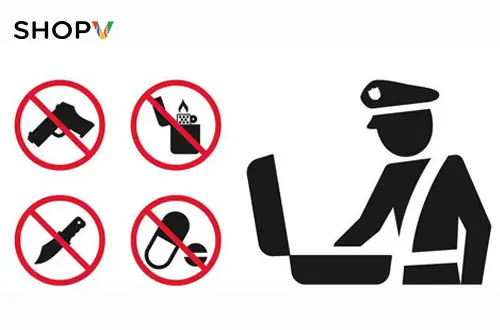The Difference Between General, Sensitive and Contraband Goods
Table of Contents
When delivering goods via border e-commerce, because different types of goods have different control requirements for international transportation, you will sometimes receive prompts from logistics companies stating that certain products cannot be shipped overseas.
General goods and sensitive goods are used to distinguish inspection standards when exported from China to other countries. If sensitive goods are transported through general cargo channels, customs clearance and shipment may not be possible due to inspection. Users may experience delays in receiving goods or be required to pay the difference in sensitive channel fees before shipment.

In international transportation, goods are usually divided into general goods, sensitive goods and prohibited goods. These classifications are of great significance when exporting and affect the customs clearance and smooth delivery of goods.
What is general merchandise?
General cargo refers to ordinary cargo that has no special requirements for transportation, loading, unloading, and storage. It is not dangerous goods, frozen goods, or fresh-keeping goods. It is not over-height or wide, does not use special boxes, and does not require commodity inspection. In short, any goods that are not sensitive goods or prohibited goods can be called general goods. Specific general goods include but are not limited to goods that do not contain international famous brands and imitation brands, logs, cigarettes, powders, pastes, liquids, food, medicines and other contraband goods.
What are sensitive goods?
Sensitive goods are distinguished based on the composition of the goods, and refer to goods between ordinary goods and prohibited goods. It is a general term for some contraband goods that may involve or have been involved in some lax supervision. It usually includes goods that require special inspection. Such as export-regulated goods, goods that may cause high tax refund issues, goods involving copyright or politics, and electrified or magnetic goods that pose safety risks to air transportation.
What are the main categories of sensitive goods?
Statutory inspection goods: including goods with export supervision condition B and legally inspected goods outside the catalog.
High-risk goods: Goods that are prone to high export tax refunds or falsely high tax refund declarations.
Goods with special factors: Goods involving copyright, political factors or similar contraband.
Aviation safety risk cargo: Electrically charged and magnetic cargo poses potential safety risks to air transportation.
Specific sensitive goods include but are not limited to computers, electronic products, health care and medical equipment, toys, cosmetics, clothes (imitation brands/name brands/unmarked), food, second-hand goods, printed matter, etc. Generally speaking, the export of sensitive goods is restricted. Air transportation and official international express delivery channels do not accept the transportation of sensitive goods, but it is not completely impossible to transport. If you find a powerful freight forwarding company, you can mail it through special channels.
How to handle the export of sensitive goods?
The export of sensitive goods requires special attention and expertise. Choosing an experienced logistics service provider, such as shopv, can help you understand complex customs regulations and ensure the smooth export of your goods.
What is contraband?
Contraband goods are items that are prohibited by law from being manufactured, purchased, used, held, stored, transported, imported or exported without permission. Usually include dangerous goods (such as explosives, flammable materials, drugs), narcotic drugs, perishable items, reactionary or obscene publications, etc. Different countries have different lists of prohibited items. For example, our country includes dangerous goods, narcotic drugs, perishable items, anti-animal items, built-in lithium batteries, etc.
Before shipping goods, cross-border e-commerce sellers should carefully understand the type of goods you want to transport and choose appropriate channels and logistics companies. So as to choose the appropriate transportation channel and avoid unnecessary choices and extra costs. If you have more questions, it is recommended that you consult a professional freight forwarding company to ensure that your goods can be transported smoothly overseas.










